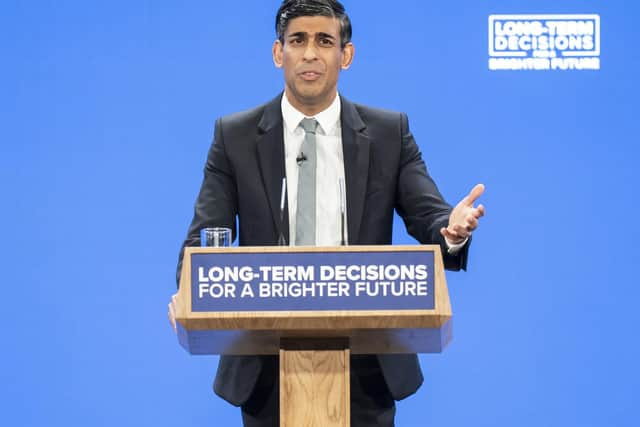Rishi Sunak's HS2 cancellation sends damaging signal to the world: Beckie Hart
The government’s announcement last week that it was scrapping the second leg of HS2 between Birmingham and Manchester - and reinvesting the £36bn savings on anew Network North initiative to improve transport connections - is dominating the political agenda.
Businesses believe a fully-fledged HS2 was a real opportunity to deliver high quality, faster connections between major cities in the North, East and West and onwards to the devolved nations, London and the South East, freeing up vital capacity and embracing the ambitious Northern Powerhouse Rail.
Advertisement
Hide AdAdvertisement
Hide AdIdeally, HS2 should be a signal for the UK’s ambition to build a high growth, competitive and sustainable economy. In London and the South East for example, new housing and residential green spaces alongside the Elizabeth Line are evidence already of how strategic rail infrastructure benefits society.


We know, our country has incredible strengths as a destination for investment. When global boardrooms weigh up where to place their money, the UK was always seen as a safe harbour due to our reputation for reliability.
But the decision to cancel the rest of the HS2 project sends a damaging signal about the UK’s status as a global destination for investment.
Millions of pounds are being spent by businesses in the Midlands, and the North, to prepare for the full HS2 route.
Advertisement
Hide AdAdvertisement
Hide AdSome nearby companies, farmers and residents are relocating. These costs are real.
And there’s another benefit from infrastructure projects like HS2. They help the UK’s transition to net zero by encouraging people onto low carbon transport freeing up roads.
In our submission ahead of the Chancellor’s Autumn Statement next month, the CBI are calling for a transition to sustainable growth that includes recognising the UK’s unrivalled net zero opportunities for industry.
This includes a new Net Zero Investment Plan, and a targeted ‘green’ super-deduction for incorporated and unincorporated firms.
Advertisement
Hide AdAdvertisement
Hide AdAlthough the government is understandably concerned about rising HS2 costs, a pressing need remains for reliable fast connections between the North, North East, North West, the Midlands and those in the South, South East and West.
Some 30,000 posts have been created across the supply chain by HS2 already, the next leg would have kick-started further employment opportunities and boosted upskilling and retraining across our region.
The government’s announcement of the Network North programme does promise much-needed regional investment, but it leaves businesses with another frustrating ‘wait and see’ moment.
The ‘start from scratch’ approach that is being proposed risks leaving businesses in a holding pattern of poor connectivity and low productivity, whilst Network North’s numerous projects are scoped, prepped and eventually delivered.
Advertisement
Hide AdAdvertisement
Hide AdThe CBI believes the UK can lead the global race to reduce emissions. HS2 has the potential to unlock connectivity in Yorkshire and the Humber and help the country grasp the green growth prizes that could deliver a £37-57 billion boost to GDP by 2030.
We cannot always outspend some of our G7 peers, but the UK can outsmart them by delivering strategic infrastructure that places us at the forefront of the net zero race, and where a sustainably growing economy for all is the priority.
Beckie Hart is CBI regional director for Yorkshire and Humber